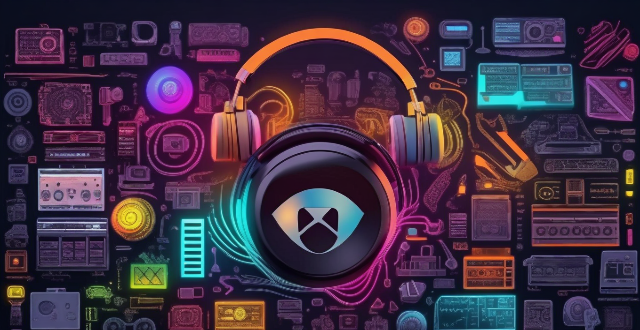Virtual reality and augmented reality technologies are revolutionizing entertainment by offering immersive, interactive, and personalized experiences. They have impacted various domains of entertainment, including gaming, movies, sports, and music. VR headsets provide an immersive gaming experience, while AR games bring gaming into the real world. VR cinema offers an immersive movie-watching experience, and AR applications enhance the viewing experience by adding virtual elements to the real world. Sports fans can enjoy a more immersive experience with VR platforms and AR applications that display real-time statistics and replays. Virtual concerts and AR-enhanced performances offer unique and personalized music experiences. Overall, these technologies make entertainment more engaging and enjoyable than ever before.

How are Virtual Reality and Augmented Reality Changing the Way We Experience Entertainment?
Virtual reality (VR) and augmented reality (AR) technologies have revolutionized the way we experience entertainment by offering immersive, interactive, and personalized experiences that were previously impossible. These technologies have transformed various aspects of entertainment, including gaming, movies, sports, and music. In this article, we will explore how VR and AR are changing the way we experience entertainment.
1. Gaming
Gaming is one of the most popular forms of entertainment that has been significantly impacted by VR and AR technologies. With VR headsets like Oculus Rift, HTC Vive, and PlayStation VR, players can immerse themselves in virtual worlds and interact with them as if they were real. This has led to the development of new genres of games, such as room-scale VR games that allow players to move around in a physical space while playing.
Key Points:
- VR headsets provide an immersive gaming experience by allowing players to step into virtual worlds.
- Room-scale VR games enable players to move around in a physical space while playing.
- AR games like Pokemon Go have brought gaming into the real world by overlaying digital elements onto the player's surroundings.
2. Movies
The film industry has also embraced VR and AR technologies to create more engaging and interactive experiences for viewers. VR cinema allows audiences to step inside a movie and interact with its characters and environments. Meanwhile, AR applications like Snapchat filters and Facebook's AR camera effects have made it possible for viewers to add virtual elements to their real-world surroundings while watching movies.
Key Points:
- VR cinema provides an immersive movie-watching experience by placing viewers inside the film's world.
- AR applications allow viewers to add virtual elements to their real-world surroundings while watching movies.
- Interactive movies that incorporate VR and AR technologies offer a unique and personalized viewing experience.
3. Sports
Sports fans can now enjoy a more immersive and interactive experience thanks to VR and AR technologies. VR platforms like NextVR allow fans to watch live sporting events from multiple angles and perspectives, providing a sense of being there in person. Additionally, AR applications can enhance the viewing experience by displaying real-time statistics, player information, and replays on top of the live action.
Key Points:
- VR platforms enable sports fans to watch live events from multiple angles and perspectives.
- AR applications can enhance the viewing experience by displaying real-time statistics, player information, and replays.
- Virtual sports stadiums offer fans a chance to attend events remotely and interact with other fans virtually.
4. Music
Music concerts and performances have also been transformed by VR and AR technologies. Virtual concerts allow fans to experience live performances from anywhere in the world, while AR applications can enhance the visual aspect of concerts by adding digital elements to the stage or projecting holographic images of musicians.
Key Points:
- Virtual concerts enable fans to experience live performances from anywhere in the world.
- AR applications can enhance the visual aspect of concerts by adding digital elements to the stage or projecting holographic images of musicians.
- Interactive music apps that incorporate VR and AR technologies offer a unique and personalized listening experience.
In conclusion, virtual reality and augmented reality technologies have significantly changed the way we experience entertainment across various domains. These technologies provide immersive, interactive, and personalized experiences that were previously impossible, making entertainment more engaging and enjoyable than ever before. As these technologies continue to evolve, we can expect even more exciting changes in the future of entertainment.